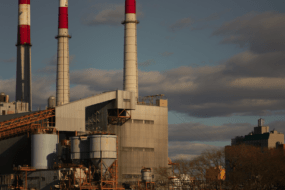- Home
- Trade News
- Argentina’s Lithium Industry ...

Argentina’s Lithium Industry: A 2023 Overview
Argentina’s Lithium Boom
Argentina is emerging as a central figure within the international lithium marketplace due to the expeditious expansion of its lithium mining endeavors. With the lithium mining sector witnessing rapid development, the South American nation is not only strategically positioning itself to challenge its neighbor, Chile, but is also on a trajectory to possibly eclipse it as the premier producer of lithium in the Latin American region by the year 2030.
Within the scope of lithium production, Argentina’s growing influence is unmistakable. Its ascent in the lithium industry is characterized by swift and calculated expansions in mining operations, reflecting a clear strategy aimed at capturing a significant share of the global lithium market, which is indispensable for powering electric vehicles, among other applications.
What’s driving Argentina’s rise is not only the global surge in demand for lithium but also the country’s unique geographical and geological advantages. Nestled within the famed ‘Lithium Triangle’ — a region shared with Chile and Bolivia — Argentina boasts vast salt flats, which are rich in high-grade lithium. These reserves are essential for meeting the increasing demand for this lightweight metal, which is crucial in manufacturing rechargeable batteries for a myriad of electronic devices and electric vehicles.
Furthermore, the Argentine government is playing an active role in fostering a conducive environment for lithium mining investments and operations to thrive. Through crafting supportive policies, providing incentives, and actively engaging with international investors and mining companies, the national government is fueling the momentum necessary for Argentina to realize its lithium production ambitions.
These decisive actions and strategic advantages collectively contribute to Argentina’s rapidly growing profile as a pivotal player in the lithium market. Given the current trajectory, analysts and industry observers anticipate that by 2030, Argentina will not only successfully rival but may indeed surpass Chile, becoming the foremost lithium-producing powerhouse in Latin America. With this projection, it is prudent for stakeholders, investors, and companies within the lithium supply chain to closely monitor Argentina’s evolving lithium landscape, as it is poised to offer significant opportunities and become a hub for lithium production and trade in the coming years.
The Global Lithium Market
The global lithium market is currently experiencing an unprecedented boom, with demand surging due to the metal’s crucial role in the production of batteries used in electric vehicles (EVs), laptops, smartphones, and various other electronic devices. As society continues to transition towards renewable energy and sustainable practices, lithium’s importance as a key component in energy storage solutions is undeniably escalating.
Market Dynamics:
Demand Growth: With the acceleration of the EV revolution and an increased reliance on portable electronic devices, the demand for lithium is anticipated to grow exponentially. Lithium-ion batteries are favored for their lightweight, high energy density characteristics, making them integral to the renewable energy sector.
Price Fluctuations: The market has witnessed significant price fluctuations in recent years due to demand-supply imbalances. Recent price surges are attributed to a rapid increase in demand outpacing the current supply.
Major Players & Production Centers:
Australia & Chile: These countries have historically led in lithium production, with Australia at the forefront followed closely by Chile. Australia boasts hard-rock lithium mining, while Chile extracts the metal from brine pools.
Emerging Players: Argentina, as part of the renowned ‘Lithium Triangle’, is becoming increasingly significant in the market. Other countries, including China, are also investing heavily in lithium production and refining capacities.
Price and Demand Dynamics
Technological Advancements: With technological proliferation, there’s been a surge in the demand for devices like smartphones, tablets, and laptops that extensively use lithium-ion batteries due to their efficiency and longevity.
Electric Vehicle (EV) Revolution: The demand for electric vehicles has skyrocketed, and since lithium is a fundamental component in EV batteries, this trend has directly influenced the demand for lithium. Governments worldwide are incentivizing EV manufacturing and use, further fuelling this demand.
Energy Storage: Lithium batteries are essential in renewable energy storage systems, making them vital as the world transitions to more sustainable energy sources.
Supply Shortages: With demand outstripping supply, lithium prices have experienced considerable volatility. As new projects and expansions of existing operations take time, the market has witnessed periods of supply tightness, driving prices upwards.
Market Speculation: The speculative nature of commodities also plays a role in lithium price dynamics. With investors closely watching the EV and tech industry’s growth, speculative trading in lithium has increased, adding to price volatility.
Contractual Agreements: Many lithium suppliers engage in long-term contractual agreements with buyers at fixed prices, somewhat insulating them from market fluctuations but also leading to disparities between contract and spot market prices.
Demand-Supply Gap:
The burgeoning demand, coupled with supply constraints, has led to a widening demand-supply gap in the lithium market. While new mining projects are underway, there’s a lag time before they become operational and contribute to the global supply, maintaining upward pressure on prices.
Short-term: Prices are expected to remain robust in the short term, owing to the persistent supply-demand imbalance.
Long-term: In the long run, as more mining projects come online and recycling technologies improve, the supply is expected to increase, potentially stabilizing prices. However, the long-term price trajectory will also significantly depend on the sustained growth in demand from the EV and renewable energy sectors.
Argentina vs. Chile
Both Argentina and Chile are pivotal players in the global lithium market, each with distinct advantages and challenges in their lithium production sectors.
Untapped Resources: Argentina boasts vast untapped lithium resources, offering significant potential for the expansion of mining operations. This gives the nation a competitive edge as the global demand for lithium continues to surge.
Government Support: The Argentine government is actively supporting the development of the lithium industry, aiming to attract foreign investment and boost production capacities.
Global Investment: Argentina is attracting a diverse group of international investors and operators, including from Russia, Canada, China, and the United States. This global interest is indicative of the country’s potential in the lithium sector.
Challenges in Argentina:
Political Uncertainty: The outcome of upcoming elections and future government policies towards the mining sector remain uncertain, which might affect the investment climate and development trajectory of Argentina’s lithium industry.
Social and Environmental Concerns: Expansion of lithium mining has sparked concerns and opposition from local communities regarding water access, environmental conservation, and indigenous rights, potentially leading to social unrest and operational disruptions.
Chile’s Advantages:
Established Producer: Chile has a long history of lithium production and is currently the world’s second-largest producer after Australia. It has established infrastructure, expertise, and market access, facilitating its lithium exports.
Quality Reserves: The country possesses high-quality lithium reserves with low production costs, making it a cost-effective producer in the global market.
Challenges in Chile:
Government Intervention: The recent decision by the government to take a majority stake in the lithium industry has caused uncertainty among business leaders and investors, potentially impacting private sector involvement and investment in the sector.
Regulatory Environment: Chile’s regulatory framework for lithium mining is considered more restrictive compared to Argentina, which might limit the sector’s growth potential.
Comparative Outlook:
Dynamic Competition: With Argentina actively working to expand its lithium mining sector and Chile facing some internal challenges, the competition between the two nations in the lithium market is dynamic and subject to change based on future developments and government policies in both countries.
Global Market Impact: The strategies and performance of both Argentina and Chile have profound implications for the global lithium market, affecting supply chains, prices, and the pace of the global energy transition.
Challenges Ahead
Argentina’s burgeoning lithium industry, despite its promising outlook, faces an array of challenges that need to be diligently navigated to sustain and enhance its trajectory. The nation’s quest to be a leading lithium producer is fraught with complexities and hurdles that require coordinated efforts from the government, industry players, and the community.
1. Economic Stability:
Fluctuating Economy: Argentina’s economic landscape is known for its volatility. Sudden economic downturns, inflation spikes, and currency devaluation can disrupt the financial viability and investment appeal of lithium projects.
2. Political Landscape:
Election Outcomes: The upcoming presidential election’s outcome will significantly influence the country’s lithium production policies. Political instability and policy reversals could dampen investor confidence and hinder long-term planning for lithium projects. Regulatory Uncertainty: Policy inconsistency and regulatory changes can create an uncertain business environment, making it challenging for lithium producers to devise and implement effective strategies.
3. Social & Environmental Concerns:
Community Opposition: There’s a tangible risk of social unrest due to opposition from local communities, particularly indigenous groups. These communities may protest against mining activities due to concerns over land rights, water usage, and environmental degradation.
Sustainable Practices: Implementing environmentally sustainable and socially responsible mining practices is crucial. Failing to do so can lead to reputational damage, legal repercussions, and loss of social license to operate.
4. Infrastructure Development:
Lack of Infrastructure: Adequate infrastructure is essential for efficient lithium extraction and transportation. Argentina needs significant investment in infrastructure development to support the growing lithium industry.
5. Global Market Dynamics:
Price Volatility: The global lithium market is subject to price volatility due to supply-demand imbalances. A sudden drop in lithium prices can affect the profitability and feasibility of mining projects in Argentina.
International Competition: With other lithium-producing countries also ramping up production, Argentina must stay competitive in terms of cost, quality, and reliability to secure its market share.
6. Technology and Expertise:
Technical Know-How: Argentina needs to continuously invest in technology and develop local expertise to improve lithium extraction and processing efficiency, reduce costs, and minimize environmental impact.
China’s Role in Argentina’s Lithium Industry
1. Significant Investor:
China has emerged as a significant investor in Argentina’s lithium sector, recognizing the country’s immense potential as a lithium powerhouse. Chinese companies and investors have been actively participating in various lithium extraction projects, contributing both financial resources and technological expertise.
Financial Backing: Chinese firms and financial institutions have invested billions in Argentina’s lithium mines and processing facilities, providing the crucial capital needed for expansion and modernization.
2. Technology Transfer:
China, as a global leader in lithium battery production, has been instrumental in transferring cutting-edge technology and technical know-how to Argentina’s lithium industry.
Expertise Sharing: With vast experience in lithium extraction and processing, Chinese experts collaborate with Argentine companies, offering valuable insights and guidance to optimize production processes and enhance efficiency.
3. Market Access:
China is the largest consumer of lithium globally due to its massive production of electric vehicles and electronic devices. By partnering with China, Argentina gains access to a colossal and ever-growing market, ensuring a steady demand for its lithium products.
Trade Partnerships: Strong trade relations between Argentina and China facilitate smoother and more profitable exports of lithium to meet China’s burgeoning demand.
4. Infrastructure Development:
Chinese investments are not confined to the mining sector alone; they extend to developing the necessary infrastructure, like roads and ports, essential for transporting lithium efficiently.
Development Projects: China’s involvement in infrastructure development projects significantly supports Argentina’s lithium industry by enhancing the logistics and supply chain efficiency required for global trade.
5. Geopolitical Considerations:
China’s engagement in Argentina’s lithium industry has geopolitical implications. While the partnership offers economic benefits, Argentina must carefully navigate its diplomatic relations to balance its national interests with its commitment to investors.
Strategic Alliance: The collaboration forms a part of China’s broader strategy to secure a steady supply of critical minerals necessary for its industries while enhancing its geopolitical influence in the region.
Trade Data Pro: Your Reliable Data Partner
For businesses and investors keen on navigating Argentina’s lithium market, accurate trade data is essential. Trade Data Pro offers reliable, up-to-date trade data that can guide informed decision-making processes, helping you capitalize on Argentina’s ‘white gold’ rush effectively and profitably.
Conclusion
Argentina’s ascent in the global lithium market is undeniable, as it quickly positions itself as a crucial player in lithium production, with projections to outshine its neighbor, Chile, in the near future. The growing demand for lithium, driven by the global transition to greener technologies, especially electric vehicles, underlines Argentina’s strategic role in the market. However, it’s not without challenges, including price volatility, potential political instability, and environmental and indigenous community concerns that need careful and strategic handling.
The pricing dynamics of lithium are subject to global market forces, with demand anticipated to surge in the coming years due to increased adoption of renewable energy technologies. Argentina’s vast lithium reserves place it in an advantageous position to capitalize on this demand, provided it navigates through its domestic challenges and global market pressures efficiently.
Comparatively, while Chile has been a dominant force in the lithium industry, Argentina’s progressive policies and welcoming investment climate create a favorable environment for the lithium mining sector to thrive. The contrasts in the political landscape and state involvement between the two nations further highlight Argentina’s appeal to global investors and stakeholders in the lithium market.
Moreover, China’s influential role in Argentina’s lithium market cannot be ignored. As a significant investor and technology partner, China supports Argentina’s lithium sector’s growth, offering both financial backing and technological expertise. However, this relationship should be cautiously navigated due to its intricate geopolitical implications.
In the panorama of these dynamics, companies like TradeData Pro become invaluable for businesses and investors keen on exploring opportunities within the lithium trade between Argentina and the global market. Platforms like TradeData Pro offer comprehensive trade data insights, helping stakeholders make informed decisions based on market trends, trade flows, and other critical data points, thereby serving as a reliable partner in navigating the complex, opportunity-laden landscape of the lithium trade.
Ultimately, with careful planning, strategic partnerships, and vigilant navigation through its challenges, Argentina’s lithium industry holds the promise of not just contributing significantly to the global lithium supply but also transforming the nation’s economic landscape in the process. The future indeed looks bright, with a golden opportunity for Argentina to establish itself as a global lithium powerhouse, driving the energy transition forward while fostering sustainable economic development at home.
Your Trusted Source for Trade Data: TradeData.Pro.
Trade Data Pro stands as a beacon of reliability in the sphere of trade data, originating from the economically robust and politically stable environment of Singapore. This esteemed platform is a brainchild of the Commodities Intelligence Centre, a notable government-linked entity and a synergistic joint venture involving Zall Smartcom, Singapore Exchange (SGX), and Global eTrade Services (GeTS). Since making its debut in 2018, Trade Data Pro has garnered acclaim for its expansive coverage, cost-effectiveness, and swift response time, earning prestigious accolades such as the Singapore Quality Class (2020), Stevie Award Gold (2021), Crozdesk 2023 Happiest Users Award, 2023 Slashdot Top Performer, and 2023 Source Forge Top Performer.
With widespread recognition, Trade Data Pro has been spotlighted in numerous reputed news outlets, including Bloomberg, Business Times, MarTech Series, ACN News, and more, further cementing its status as a reputable source in the industry. User satisfaction remains paramount, reflected by stellar average ratings of 5 stars on leading review platforms like SourceForge, Capterra, G2, and others. This unanimous user acclaim speaks volumes about the platform’s unyielding commitment to quality and customer satisfaction. Check out our new upgrade information here.
In a world where procuring pivotal data for unmasking trends, pinpointing market openings, keeping tabs on the competitive landscape, and comprehending supply chain potential has traditionally been daunting, Trade Data Pro simplifies this endeavour. The platform meticulously collates and curates shipment data mandated by governmental import-export filings, presenting it as actionable business intelligence. This treasure trove of information facilitates a crystal-clear understanding of goods movement across international borders and is encapsulated within the largest searchable trade database globally available.
For businesses eyeing the vibrant Vietnamese industry, TradeData.Pro offers up-to-the-date data. Engage with our intuitive platform to discover products that align with your interest by exploring our trade database demo: Vietnam Import Export Data. For historical insights into penetrating new markets, kindly visit our Trade Database Demo.
For a dynamic understanding of our platform’s operations, view the video linked below or visit YouTube. With Trade Data Pro, you’re not just accessing data; you’re unlocking a gateway to informed, strategic global trade decisions.
Argentina Lithium Industry Argentina Resources Argentine Lithium Reserves Battery Industry Electric Vehicles Energy Storage Lithium Demand Lithium Export Lithium Industry Trends Lithium Investment Lithium Market Lithium Mining Lithium Production Lithium Supply Chain Renewable Energy






